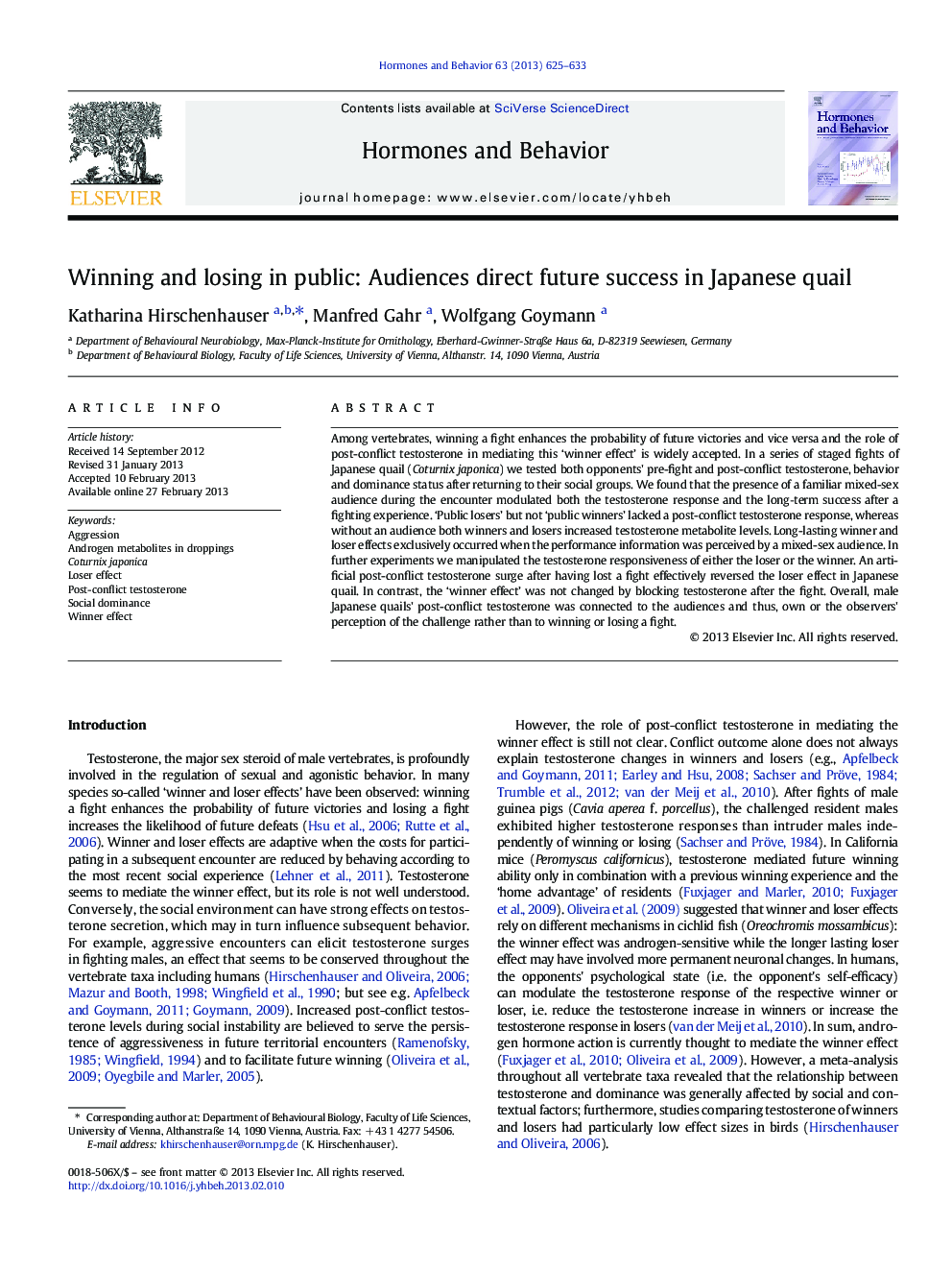| کد مقاله | کد نشریه | سال انتشار | مقاله انگلیسی | نسخه تمام متن |
|---|---|---|---|---|
| 322772 | 540236 | 2013 | 9 صفحه PDF | دانلود رایگان |

Among vertebrates, winning a fight enhances the probability of future victories and vice versa and the role of post-conflict testosterone in mediating this ‘winner effect’ is widely accepted. In a series of staged fights of Japanese quail (Coturnix japonica) we tested both opponents' pre-fight and post-conflict testosterone, behavior and dominance status after returning to their social groups. We found that the presence of a familiar mixed-sex audience during the encounter modulated both the testosterone response and the long‐term success after a fighting experience. ‘Public losers’ but not ‘public winners’ lacked a post-conflict testosterone response, whereas without an audience both winners and losers increased testosterone metabolite levels. Long-lasting winner and loser effects exclusively occurred when the performance information was perceived by a mixed-sex audience. In further experiments we manipulated the testosterone responsiveness of either the loser or the winner. An artificial post-conflict testosterone surge after having lost a fight effectively reversed the loser effect in Japanese quail. In contrast, the ‘winner effect’ was not changed by blocking testosterone after the fight. Overall, male Japanese quails' post-conflict testosterone was connected to the audiences and thus, own or the observers' perception of the challenge rather than to winning or losing a fight.
► We tested the role of an audience in modulating testosterone and mediating the ‘winner effect’ in male Japanese quail.
► Without audience winners and losers had increased post-conflict testosterone levels, both remained dominant in their group.
► With an audience, particularly losers lacked a post-conflict testosterone response and did not remain dominant.
► An informed audience directed the male's future social dominance, whereas testosterone was only secondarily involved.
Journal: Hormones and Behavior - Volume 63, Issue 4, April 2013, Pages 625–633